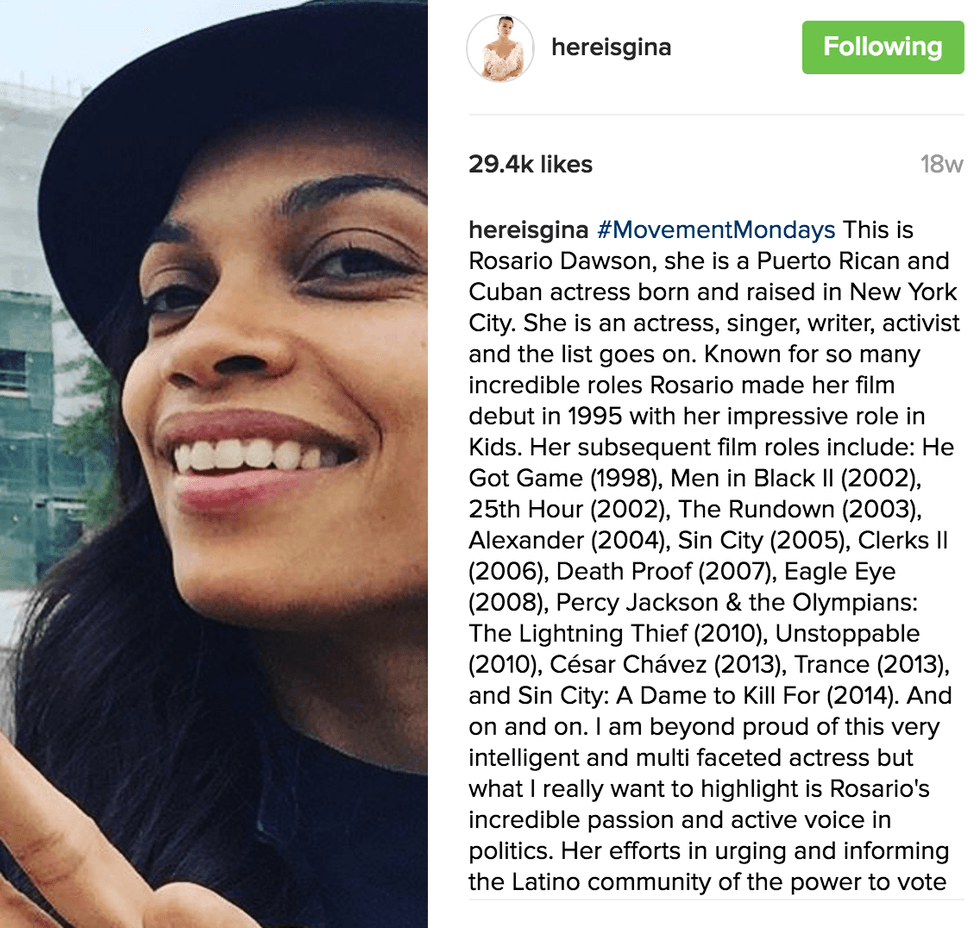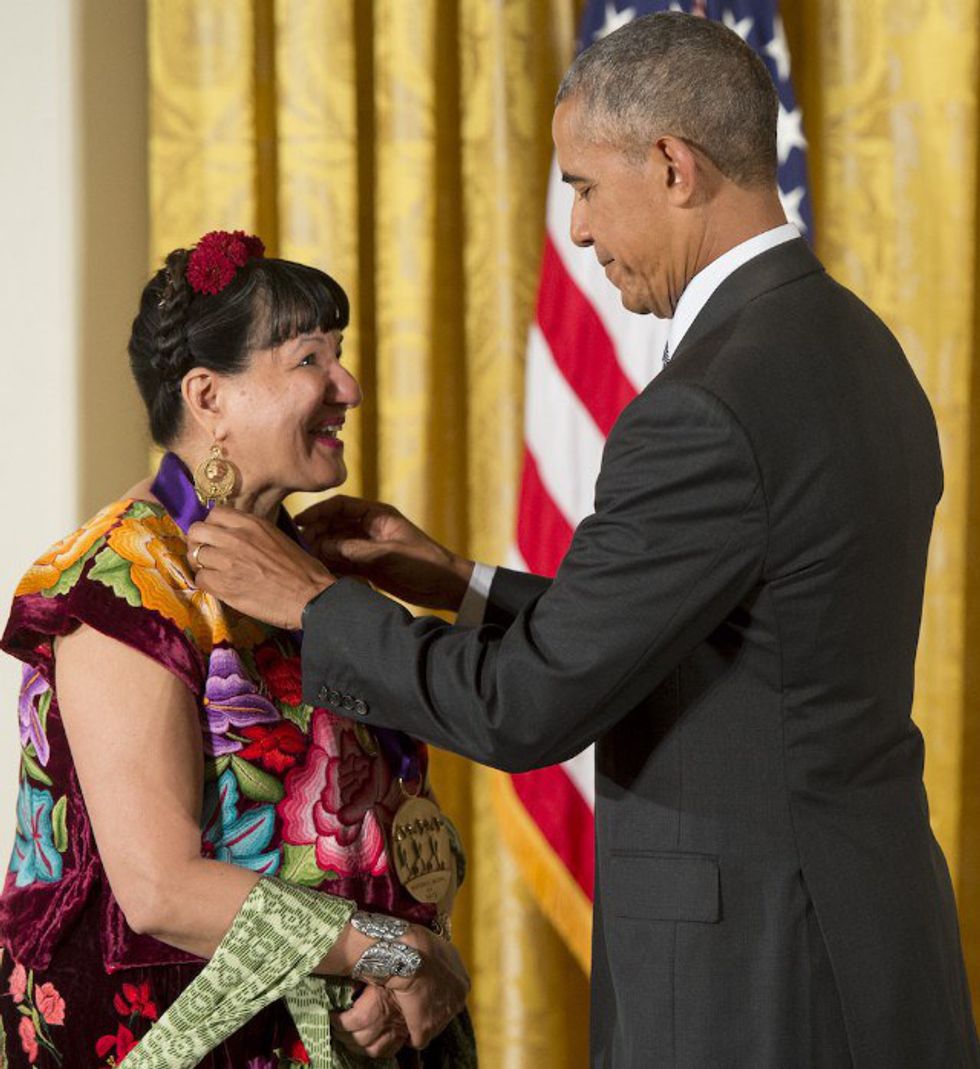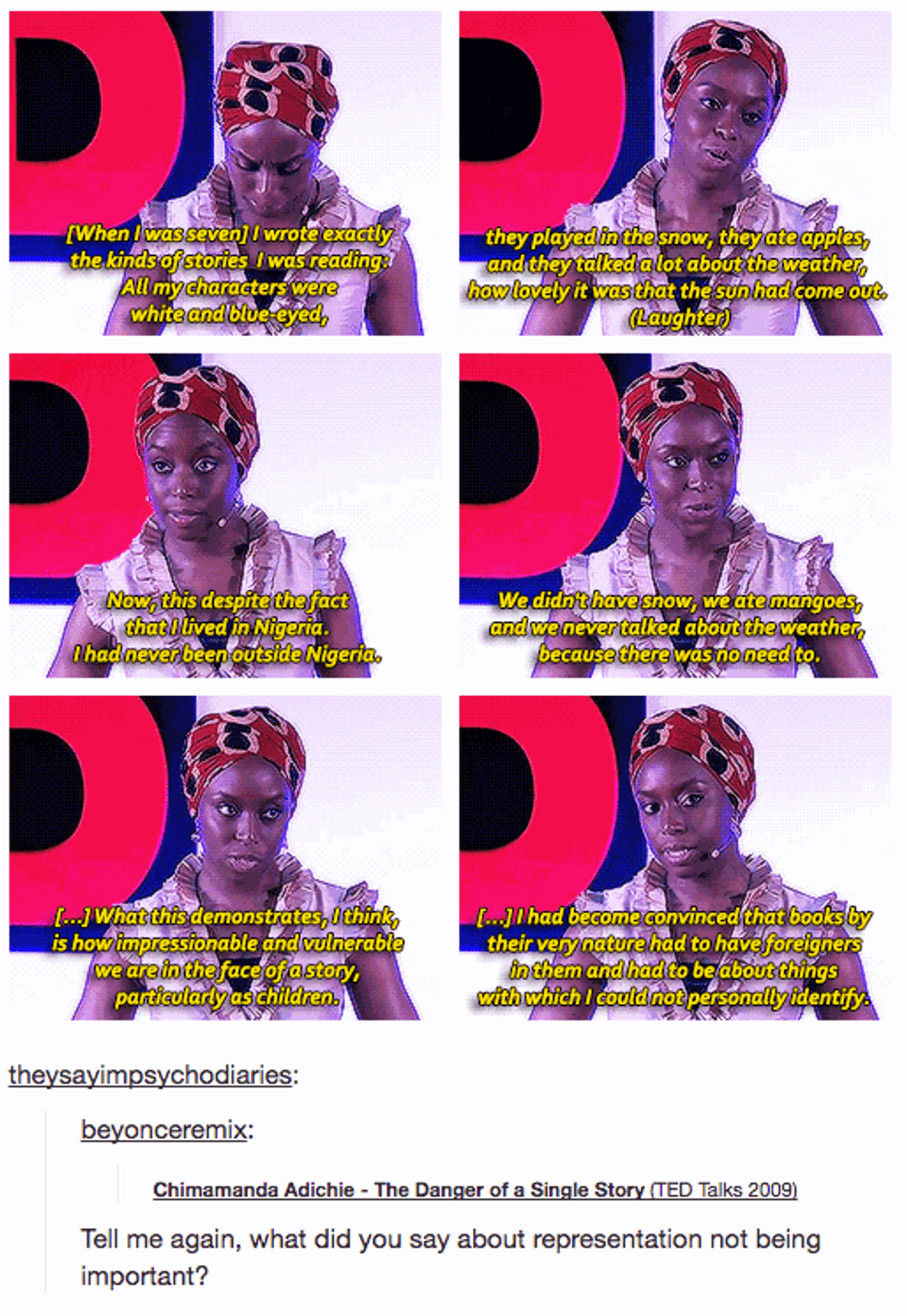It's been a week of celebratory fireworks in my brain.
First, I found out that the first U.S. Mexican-American poet was dubbed poet laureate on June 10th (I'm very late to the race, I acknowledge). Then, Gina Rodriguez's movie Deepwater Horizon came out this past weekend, a rare occasion in which a Latina in Hollywood is finally representing a person, not a stereotype. Also, for the past few months, she has done what she's called "Movement Mondays" on her Instagram, in which she posts a different profile of a Latinx actor/actress each week to empower the Latinx community in Hollywood.
On September 22nd, Mexican-American author Sandra Cisneros received the 2015 National Medal of Arts from President Barack Obama. She received her medal clad in a traditional Mexican dress, proudly displaying her love for her heritage.
Her work was acknowledged for its enrichment of the narrative of gender, race, and class in the U.S. and in all the places her work is being read, published, and translated. Ms. Cisneros lives in Mexico and dedicates most of her time to her beloved craft.
Perhaps some might see these recognitions as attempts to bolster diversity in culture and the media, to portray a more inclusive image of the industry and the mainstream.
But to people whose heritage and culture have remained second-class to the "American" (read White) culture they are told to assimilate into, these recognitions are public displays of an internal, deep phenomenon that occurs to us when we discover our own identity being echoed back to us from a position of influence.
Sandra Cisneros' books have been influencing readers of all generations for years before she even got this medal. Juan Felipe Herrera has been an activist for the Chicano Movement since the 60s. And many actresses who came before Gina, whether they were traditionally acknowledged as Latina or not, have been seeking roles that interpret actual stories, not offensive stereotypes that wrongly depict Latina women.
For decades, the Latinx community in America has been writing its own narrative, striving so that some semblance of its authenticity might be included in the mainstream depiction of Latinos in America. Latinos have been hungrily seeking representation in the media because the people we see on TV, read about in books, listen to on the radio, in our classrooms, doctor's offices, and sports games give us a picture of what our own futures can look like, of the people we can become. And when we hear a lie enough times, when we see it everywhere, we start to believe it, even against our will.
This is why an accurate representation of Latinos matters. Not that we place the burden on the select few to represent their whole nation. But when we see someone who looks and talks like us being recognized for their achievements and valued for their authentic self, a new narrative opens up for us.
As Chimamanda Ngozi Adichie explained in her TED talk:
When we see our narrative being acknowledged and valued, we are encouraged to stop trying to fit into experiences we can't relate to, and we begin to raise the voice of our own identity.
And yet, there is a lot of work to be done, because although pioneers like Sandra Cisneros, Gina Rodriguez, and Juan Felipe Herrera are finally being recognized as their work deserves, we have presidential candidates degrading the Latinx community, calling a Latina woman "Miss Housekeeper," and willfully tearing apart the jagged wounds between nations.
I myself am starting to shed the lies that being an immigrant is a disadvantage, after nearly twelve years of living in this country. I am starting to embrace the different narrative that comes with being a third-culture kid. And I hope, that as the Latinx narrative grows and solidifies in mainstream culture, that it may be a healing bridge between nations, ethnicities, cultures, dialects, and people. As the saying goes, "We could be so good together..."




















